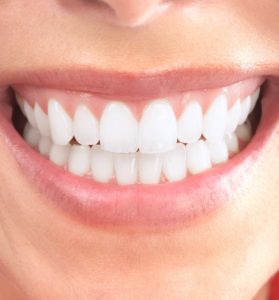 The old proverb, “A smile is worth a thousand words,” is as relevant as ever today. A survey conducted by the American Academy of Cosmetic Dentistry (AACD) disclosed that 48 percent of adults believe when first meeting someone, their smile is the most memorable feature. In another AACD survey, dentists revealed that the most frequently requested cosmetic procedure is teeth whitening.
The old proverb, “A smile is worth a thousand words,” is as relevant as ever today. A survey conducted by the American Academy of Cosmetic Dentistry (AACD) disclosed that 48 percent of adults believe when first meeting someone, their smile is the most memorable feature. In another AACD survey, dentists revealed that the most frequently requested cosmetic procedure is teeth whitening.
There are two options — the do-it-yourself approach or setting up a whitening appointment with a dentist. Despite the popularity of home tooth-whitening kits and products, according to dentistry specialists at Northfield Dental Group the safest, most effective and long-lasting method is to undergo a professional tooth-whitening procedure.
Discolored Teeth
There are two main types of tooth discoloration. Extrinsic stains are on the surface and can stem from use of tobacco, black tea, red wine, coffee, or foods that have a high pigmentation.
Intrinsic tooth stains are harder to whiten, as they reside in the inner layer of the tooth, or the dentin, beneath the enamel. The cause can be from an injury, the use of medications such as tetracycline, or overexposure to fluoride. The intrinsic stains can also be age-related as enamel can thin over the years, allowing the more yellow dentin layer to show through.
At-Home Options
Stores are stocked with dozens of teeth-whitening options, including toothpastes, gel strips, whitening pens and rinses, among others. If you have tried any over-the-counter whitening products, you are in good company. According to U.S. Census data and Simmons National Consumer Survey results, 40.5 million Americans purchased tooth whiteners in 2018.
The popularity of those products is rapidly rising. The worldwide market for teeth- whitening products is expected to grow roughly 5.2 percent over the next five years, according to a 2019 GIR (Global Info Research) study.
The Trouble With Over-the-Counter Whiteners
But the over-the-counter approach has many drawbacks. While teeth-whitening strips and gels contain a small amount of bleaching agents such as carbamide or hydrogen peroxides, the low concentrations mean you will likely need to use several applications before noticing results. Stubborn stains may not respond, leading to a spotty smile.
It is also difficult to reach all of your teeth evenly with strips and trays at home, which can result in an uneven, blotchy appearance. Tooth and gum sensitivities are common with an at-home approach, especially when trays do not fit well. These home products often do not work on restorations like crowns or fillings.
Professional Tooth Whitening Procedures Do the Trick
Professional tooth whitening in a dental office is the preferred whitening method. At Northfield Dental Group, stronger concentrations of the whitening agents can be applied than with an over-the-counter kit, and the entire mouth, including the gums, is protected during the procedure to reduce sensitivity.
The whitening takes about one hour and begins with the dentist preparing the treatment area, covering lips and gums for protection. Next, a hydrogen-peroxide gel is applied to your teeth and a lamp is used to help activate the hydrogen peroxide and work on the stained teeth.
The dentist will apply a new layer of the whitening gel every 15 minutes during the procedure to ensure optimal results, which potentially can transform your teeth from three to eight shades brighter. For stubborn teeth, Northfield Dental Group may recommend veneers for an even smile.
After the whitening is complete, a fluoride gel is used on your teeth to reduce sensitivity. Your dentist then sends you home with a personal touch-up kit and instructions for how to care for your teeth.
How Long Will It Last?
The in-office procedure will usually last at least a year, depending on how you care for your teeth. The results can be affected by factors such as if you are smoker or drink a lot of coffee or wine, and how often you brush and floss.
To learn more about whitening your teeth, the team at Northfield Dental Group invites you to book an appointment at our practice. Please call or email us today to schedule an evaluation.




 Our Practice
Our Practice Our Doctors
Our Doctors Blog
Blog Special Offers
Special Offers Financing
Financing Testimonials
Testimonials